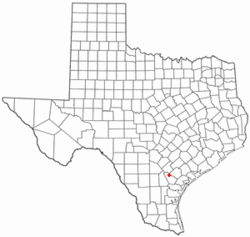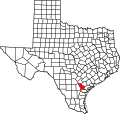2000 census
As of the census [1] of 2000, there were 292 people, 119 households, and 84 families residing in the CDP. The population density was 65.2 inhabitants per square mile (25.2/km2). There were 135 housing units at an average density of 30.1 per square mile (11.6/km2). The racial makeup of the CDP was 81.51% White, 0.68% African American, 1.03% Native American, 13.70% from other races, and 3.08% from two or more races. Hispanic or Latino of any race were 39.73% of the population.
There were 119 households, out of which 32.8% had children under the age of 18 living with them, 58.8% were married couples living together, 10.1% had a female householder with no husband present, and 28.6% were non-families. 27.7% of all households were made up of individuals, and 16.8% had someone living alone who was 65 years of age or older. The average household size was 2.45 and the average family size was 2.99.
In the CDP, the population was spread out, with 27.7% under the age of 18, 5.5% from 18 to 24, 26.7% from 25 to 44, 20.2% from 45 to 64, and 19.9% who were 65 years of age or older. The median age was 38 years. For every 100 females, there were 96.0 males. For every 100 females age 18 and over, there were 91.8 males.
The median income for a household in the CDP was $22,500, and the median income for a family was $31,250. Males had a median income of $28,750 versus $13,125 for females. The per capita income for the CDP was $15,333. About 11.6% of families and 14.9% of the population were below the poverty line, including 16.9% of those under the age of eighteen and 21.7% of those 65 or over.




